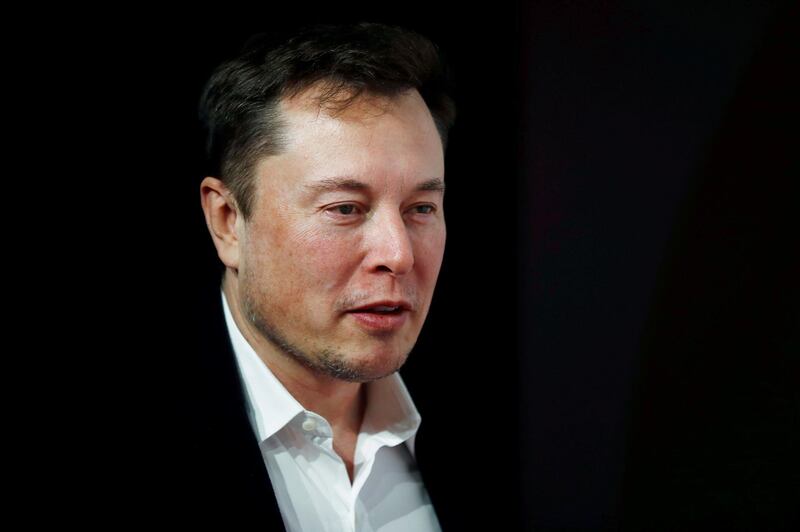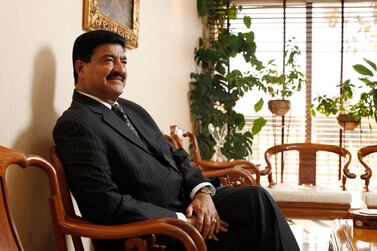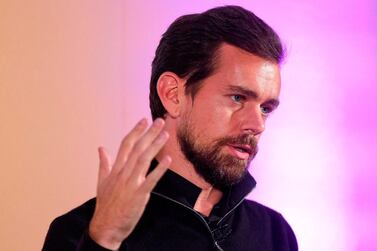Elon Musk and Mark Zuckerberg
Silicon Valley billionaires Elon Musk and Mark Zuckerberg offered differing views on movement restriction measures designed to slow the spread of the coronavirus on Wednesday, with Facebook's Zuckerberg endorsing the measures while Tesla's Musk condemned them as anti-democratic.
Mr Musk, 48, who has often made outspoken and even inflammatory comments on conference calls and Twitter, told analysts on Tesla's earnings call that it was "fascist" to say people cannot leave their homes.
"This is not democratic, this is not freedom," Mr Musk said.
He had tweeted "FREE AMERICA NOW" in a post ahead of Tesla releasing first-quarter results.
As he renewed his calls to reopen the economy on Friday, Mr Musk's tweets that the electric-car maker’s stock is too high and that he’s selling “almost all” of his physical possessions and won’t own a house led to Tesla's shares plunging 10 per cent to close at $701.32.
Mr Zuckerberg, on the other hand, in comments on Facebook's own earnings calls, expressed concerns about easing restrictions.
"I worry that reopening certain places too quickly before infection rates have been reduced to very minimal levels will almost guarantee future outbreaks and worse longer-term health and economic outcomes," he said.
Both companies are based in the San Francisco Bay area, which issued a shelter-in-place order early on to slow the virus' spread before California issued a statewide order.
Electric carmaker Tesla and social media network Facebook have had different experiences under the lockdown.
Tesla had initially resisted efforts by California authorities to shut its plant in the Bay Area, until agreeing on March 19 to suspend production. Even so, Tesla on Wednesday reported its third profitable quarter in a row.
Facebook, the world's largest social network, said on Wednesday that usage rose during the first quarter amid the movement restrictions, although advertisement revenue plunged in March.
Mr Musk has said the extension of the shelter-in-place order "will cause great harm, not just to Tesla, but to any companies".
"And while Tesla will weather the storm, there are many small companies that will not," he added.
Despite his statements on Twitter and the impact of the pandemic Tesla's stock is still up 68 per cent for the year.
Mr Musk's remarks overshadowed an otherwise successful quarter that took many investors by surprise as carmaker peers were hit by a slump in consumer demand and forced factory shutdowns.
Tesla's revenue rose to $5.99 billion (Dh22bn) from $4.54bn during the same quarter last year. While Tesla suspended production in Fremont, California, on March 23, the company still managed to build almost 103,000 vehicles and deliver about 88,400 in the first quarter.
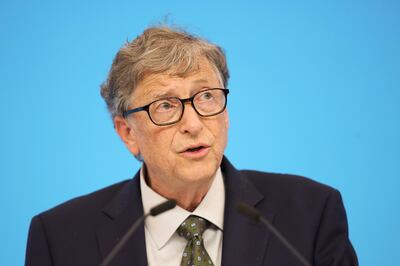
Bill Gates
Bill Gates's foundation will focus all of its resources on fighting the coronavirus, the Financial Times reported.
The philanthropist and founder of Microsoft said the Bill & Melinda Gates Foundation, with an endowment exceeding $40bn, will give "total attention" to the pandemic that has killed more than 200,000 and is roiling economies around the world, he said in an interview with the newspaper.
"You're going to have economies with greatly reduced activity levels for years," Mr Gates said. The pandemic could cost the global economy "tens of trillions of dollars," he said in the interview.
The foundation has contributed $250 million to help counter the coronavirus and is repurposing units dedicated to fighting other diseases to join in the battle against the pandemic.
"We've taken an organisation that was focused on HIV and malaria and polio eradication, and almost entirely shifted it to work on this," he said.
Mr Gates also defended the World Health Organisation against accusations from US President Donald Trump that the body had mishandled the virus response.
"WHO is clearly very, very important and should actually get extra support to perform their role during this epidemic," Mr Gates said. He said he doesn't believe Mr Trump will follow through on his threat to withdraw funding for the WHO.
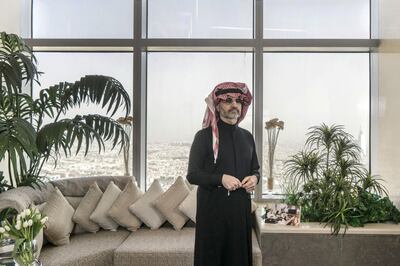
Prince Alwaleed bin Talal
Alwaleed Philanthropies, chaired by Prince Alwaleed bin Talal, has allocated $30m to the battle against Covid-19. The funding will be used to enable better hygiene, improve testing capabilities in developing countries and provide long-term economic solutions.
The amount includes $9.4m of existing funds that have been reallocated and an additional $20.6m.
The funds will go towards diverse initiatives, including The Bill & Melinda Gates Foundation, Gates Philanthropy Partners, the World Health Organisation, UN-Habitat, Gavi, Splash, the End Fund, and The Islamic World Educational, Scientific and Cultural Organisation.
"In these times of unprecedented crisis it is more important now than ever that we pull our resources together in the battle against Covid-19," Prince Alwaleed said. "With many developed nations struggling to cope with the Covid-19 pandemic, we must spare a thought for the developing countries of Africa and the less fortunate countries in the Middle East."
To help Saudi Arabia combat the coronavirus, Prince Alwaleed has also made available many of his assets including his Four Seasons Hotel, Kingdom Schools, Banque Saudi Fransi and National Industralisation Company (Tasnee).
Prince Alwaleed's $13.8bn fortune is at its lowest since 2012, when he debuted at No 24 on the Bloomberg Billionaires Index. The man who had often been described as the Warren Buffett of the Middle East, with a net worth that climbed as high as $36.1bn in 2014, is now No 93 on the list.
The prince's most valuable asset, a 95 per cent stake in investment firm Kingdom Holding, has lost three-quarters of its value since it peaked in 2014.
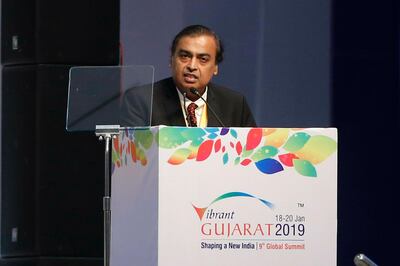
Mukesh Ambani
Mukesh Ambani is Asia's richest person once again after a deal with Facebook sent his conglomerate's stock surging.
Mr Ambani's fortune rose about $4.7bn to $49.2bn on April 22, after Reliance Industries gained 10 per cent. The jump put Mr Ambani about $3.2bn ahead of China's Jack Ma, according to the Bloomberg Billionaires Index. The ranking updates after the close of each trading day in the US.
As of Thursday, Mr Ambani's current net worth is $52.2bn while Mr Ma is worth $45.6bn.
Facebook will invest $5.7bn in the US social-networking giant's biggest deal since the 2014 purchase of WhatsApp as it seeks a broader foothold in its biggest global market. It will buy about 10 per cent of Mumbai-based Jio Platforms, becoming the largest minority shareholder.
Before the deal announcement, Mr Ambani – who owns the world's largest oil refinery – had seen his wealth decline by $14bn on the index in 2020, the biggest dollar fall of anyone in Asia.
The partnership with Jio will allow Mr Zuckerberg to step up his expansion in a country that is rapidly embracing online payment and e-commerce as smartphone ownership rises.
With its half-billion internet users, India is a key market for the world's largest technology companies. In the South Asian country, Facebook has about 250 million users, while WhatsApp has more than 400 million.
That should help Jio bolster its reach, according to James Crabtree, author of The Billionaire Raj, a book on the country's wealthiest people. But the transaction also shows the extent of Mr Ambani's own influence, he said.
"This deal clearly shows that if you want to play big in Indian tech, you need to play nice with Mukesh Ambani," adds Crabtree.
